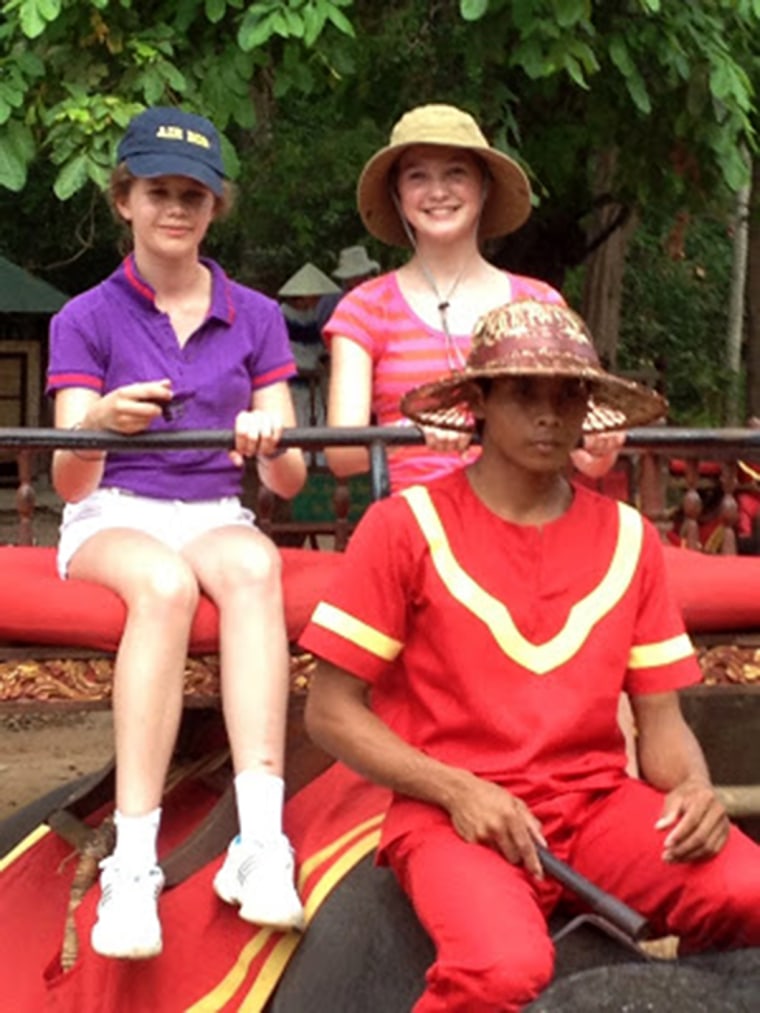Did you make sure to pack the Mad Libs and stuffed animals? Turns out you'll need them: Long-term travel for families is becoming more and more popular.
Sean Keener, co-founder and CEO of the BootsnAll Travel Network, which helps travelers plan complex trips, says the number of folks chucking their routine lives for extended adventures is growing.
“Particularly in areas of the world that provide more value per travel dollar, such as Southeast Asia, South and Central America,” Keener said.

For Ashley and Peter Milliken, who recently embarked on a four-month adventure to Taipei, followed by a three-month voyage to China, Thailand, Cambodia and Vietnam, it was about exposing their tween daughters to the "real world" before high school.

“We live in a lovely albeit small, rather homogenous town in Vermont,” says Milliken, a teacher. “We wanted them to get to know a foreign place in some depth.”
“Society has changed,” says Marek Bron, author of "Travel the World Without Worries: A Complete Guide to Backpacking." “Careers are much more fluid, and people take opportunities as they arise.”
Indeed. Long before their journey, Peter Milliken approached his business partner about his proposed absence and the two worked out an arrangement that would allow him time to work remotely while traveling and spending time with his family.

But it was still "an expense," according to his wife, Ashley, who also gave up her teaching position in order to travel. She spent the better part of four months arranging housing abroad, applying for visas, scheduling necessary vaccinations and taking Chinese language refresher courses with her husband.
One of the biggest adjustments had to do with the children's education. Ashley Milliken chose to homeschool their girls, which involved notifying their school district and prepping timely lessons. And since learning a foreign language was a big takeaway, she hired a local tutor to supplement book work.
Of course, the most invaluable takeaways came from total immersion in other cultures, whether it was meeting locals or indulging in foreign cuisines. The Milliken girls, then 10 and 12, blogged about their colorful adventures, penning posts about exotic foods, feeding pineapples to elephants, visiting generations-old knife factories, hiking Huangdidian outside of Taipei, and enduring 20-hour train rides across the Chinese countryside.
Keener agrees that traveling buoys traditional classroom studies: “Long-term travel is as important as formal education in any person's educational process."
“The whole experience was more than we could have ever hoped to give them,” said Ashley Milliken. “We turned them onto the bigness of the world we live in.”